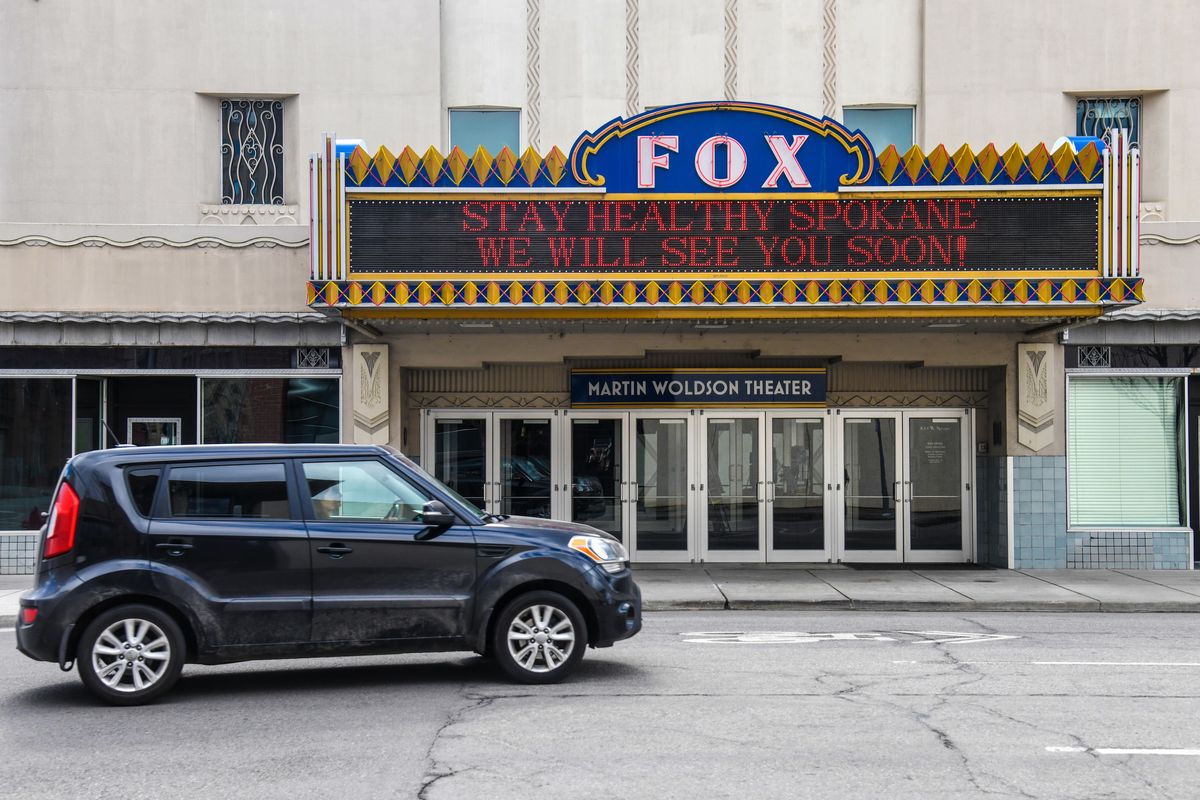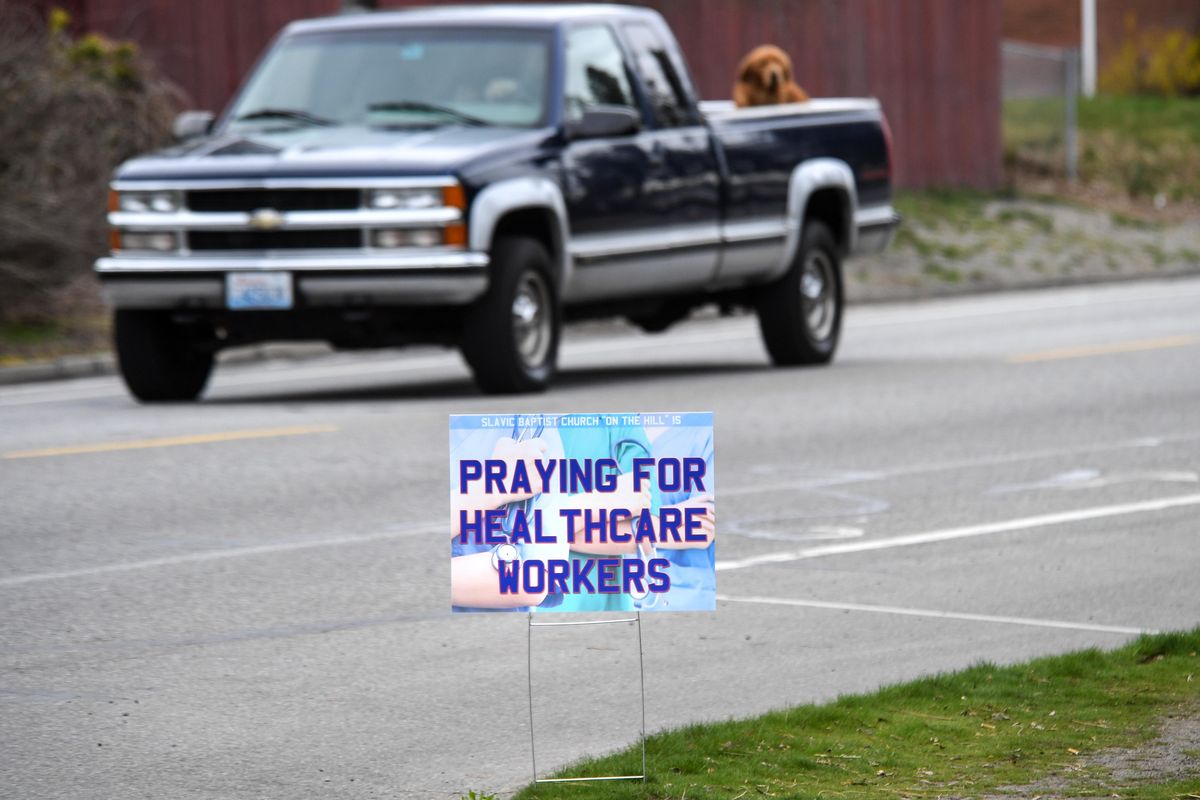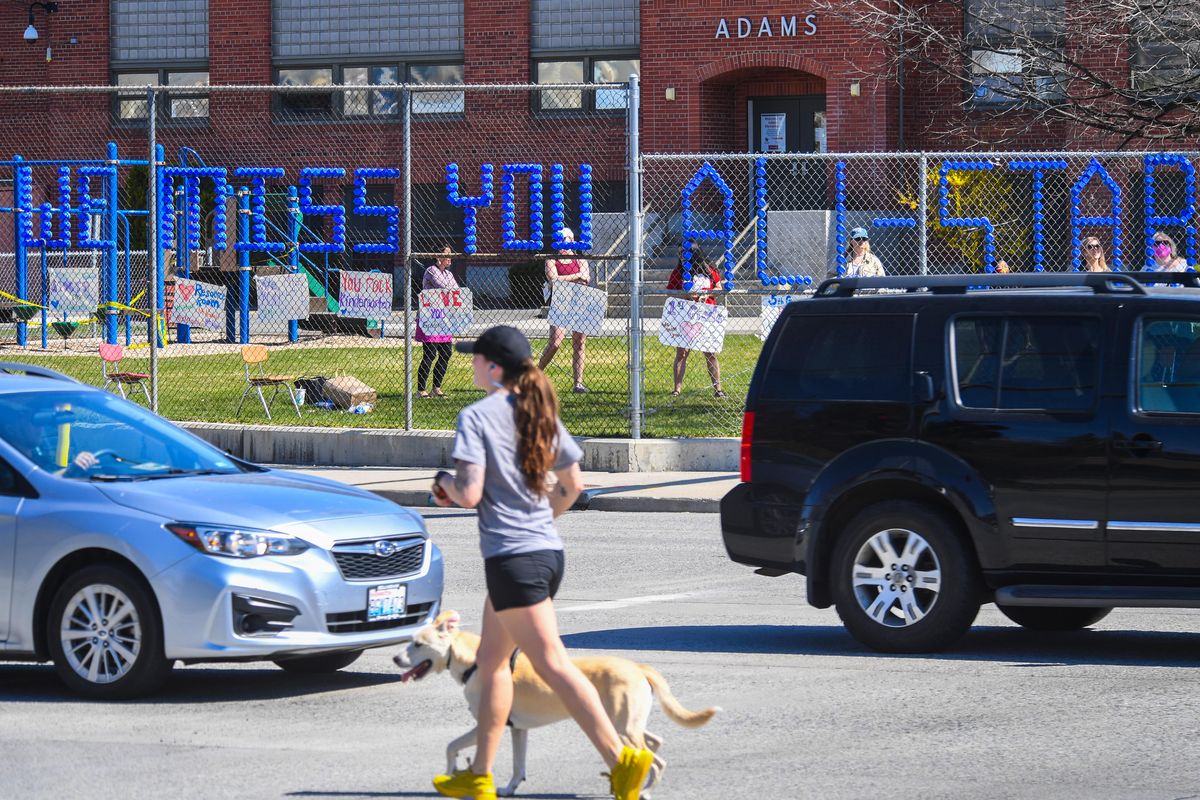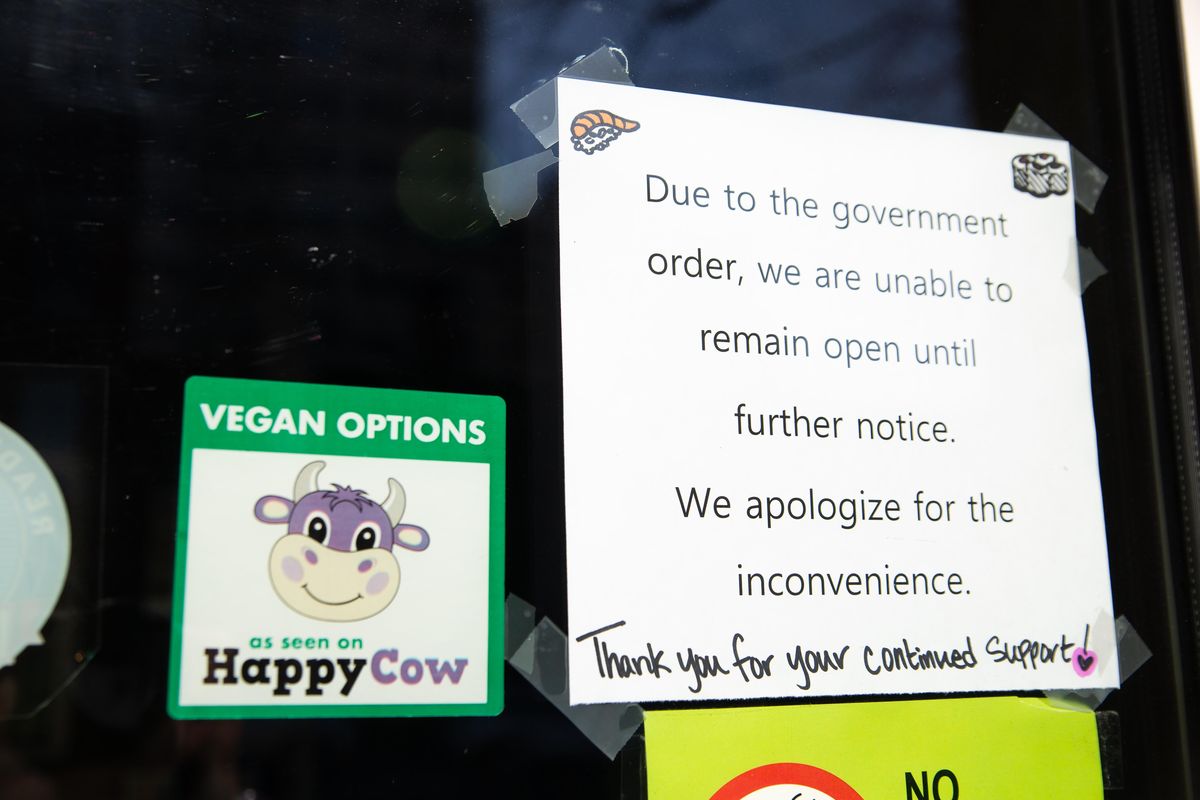History in the making: Museums ask public for help documenting COVID-19 experience

Spokane-area museums are asking the public to snap a photo of an encouraging sign, save a homemade mask or keep a journal or video diary – anything to preserve the story of the COVID-19 pandemic and to give future generations a glimpse into how their community got through it.
Spokane Valley Heritage Museum, the Northwest Museum of Arts and Culture in Spokane and the Washington State Historical Society are joining institutions around the world, including the Chicago History Museum and Columbia University in New York, in their quest to record the story of the present.
A sign by the Slavic Baptist Church, on the corner of Driscoll Boulevard and Hoffman Avenue in Spokane, asks for prayers for health care workers during the COVID-19 pandemic. Area museums are collecting mementos of the pandemic for preservation. (Dan Pelle / The Spokesman-Review)Buy a print of this photo
Jayne Singleton, the executive director of the Spokane Valley Heritage Museum, said the museum has already begun to save newspaper articles and other objects but hopes others will contribute to the effort and help tell future generations the story of how the community responded to a rare and severe threat.
“Hopefully this won’t ever happen again, but if it does, there’s an archive where you can look and say, ‘Oh, this is how they coped with that,’ ” she said.
The museum will accept items from across the Spokane region, and Singleton said anyone can contribute.
When documenting history, Singleton said “the eyes and ears are out in the community. We can’t possibly be aware of everything in the community. It’s open to anybody and everybody.”
The museum has been building its collection for several weeks while the MAC set up an email for collecting from the public this week.
Freya Liggett, the MAC’s curator of history, said it’s not the first time the museum in Browne’s Addition has helped preserve artifacts from current events that became historical events.
An exhibition that opened in December for the 40th anniversary of the Mount St. Helen’s eruption included jars of ash and newspapers from the period.
She said it may be years before historians have identified the objects people will use to remember COVID-19.
“That’s the million-dollar question,” she said. “Is there going to be something? We probably won’t know for 100 years.”
Liggett said it’s often a difficult decision to start a collection during a historical event because it often takes at least a decade of perspective to know how much that moment defined history. But COVID-19 is different, she said. Museums have already recognized the pandemic as a generational event.
“There’s some benefit on not putting too many parameters on it,” Liggett said. “I wouldn’t want to limit it to our own imaginations. The museum staff doesn’t represent the whole experience for COVID-19.”
Maggie Wetherbee, head of collections at the Washington State Historical Society, said it’s also important that every submission sent to a museum has a story to go along with it.
She said historians tend to think about the objects they are collecting and cataloging by how they will be interpreted decades or a century later. Anyone who submits to a COVID-19 museum collection program should include the story of the object or the image.
She said the Washington State Historical Society also realized the need to involve the community in archiving COVID-19 after outside organizations started requesting information on the 1918 Spanish Flu and the museum only had some images to share.
“People weren’t actively thinking about collecting then,” she said. “So the information that we have is limited, and we don’t want that to repeat itself.”
The Washington State Historical Society is collecting materials statewide. Wetherbee said she would like to hear from all types of communities and demographics to make sure the history of COVID-19 is a true representation of what people experienced.
The historical society has already received hundreds of contributions over the past week, ranging from photos of murals painted over shuttered businesses to a mask made from a Seattle Seahawks cup holder to Star Wars COVID-19 memes.
“We learn from history and the more stories we have, the more layers of history we can have,” she said. “The more people we hear from, the more experiences we can save, the better off we will be.”











